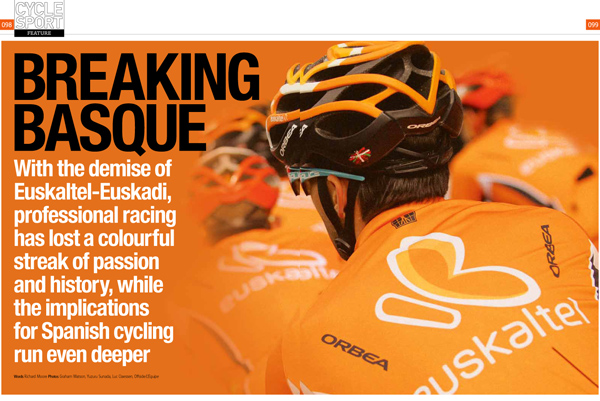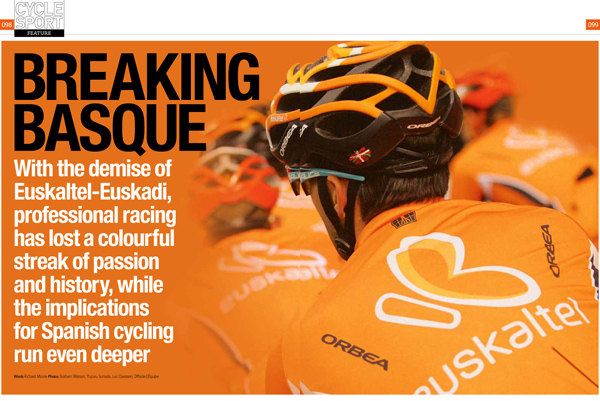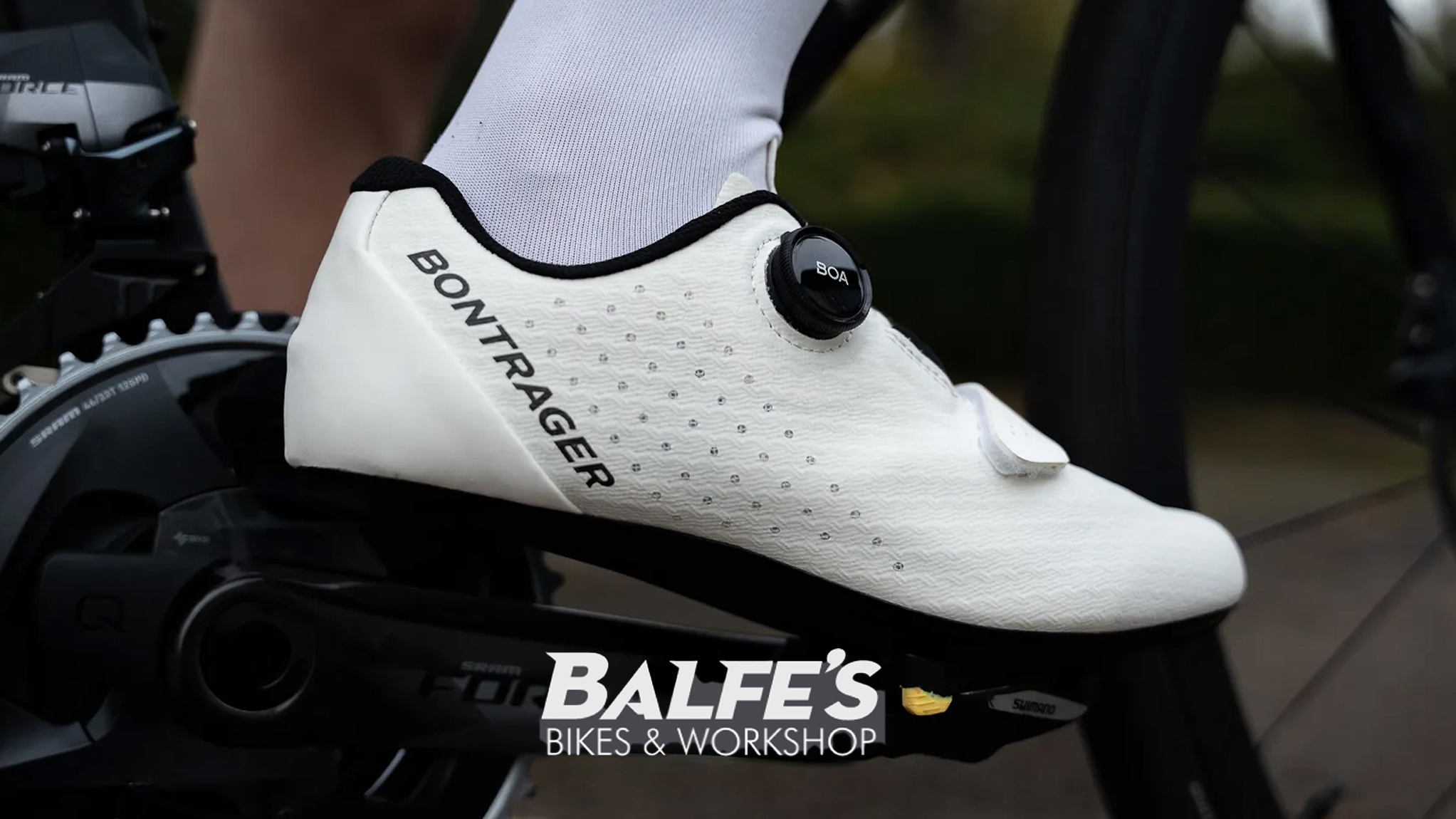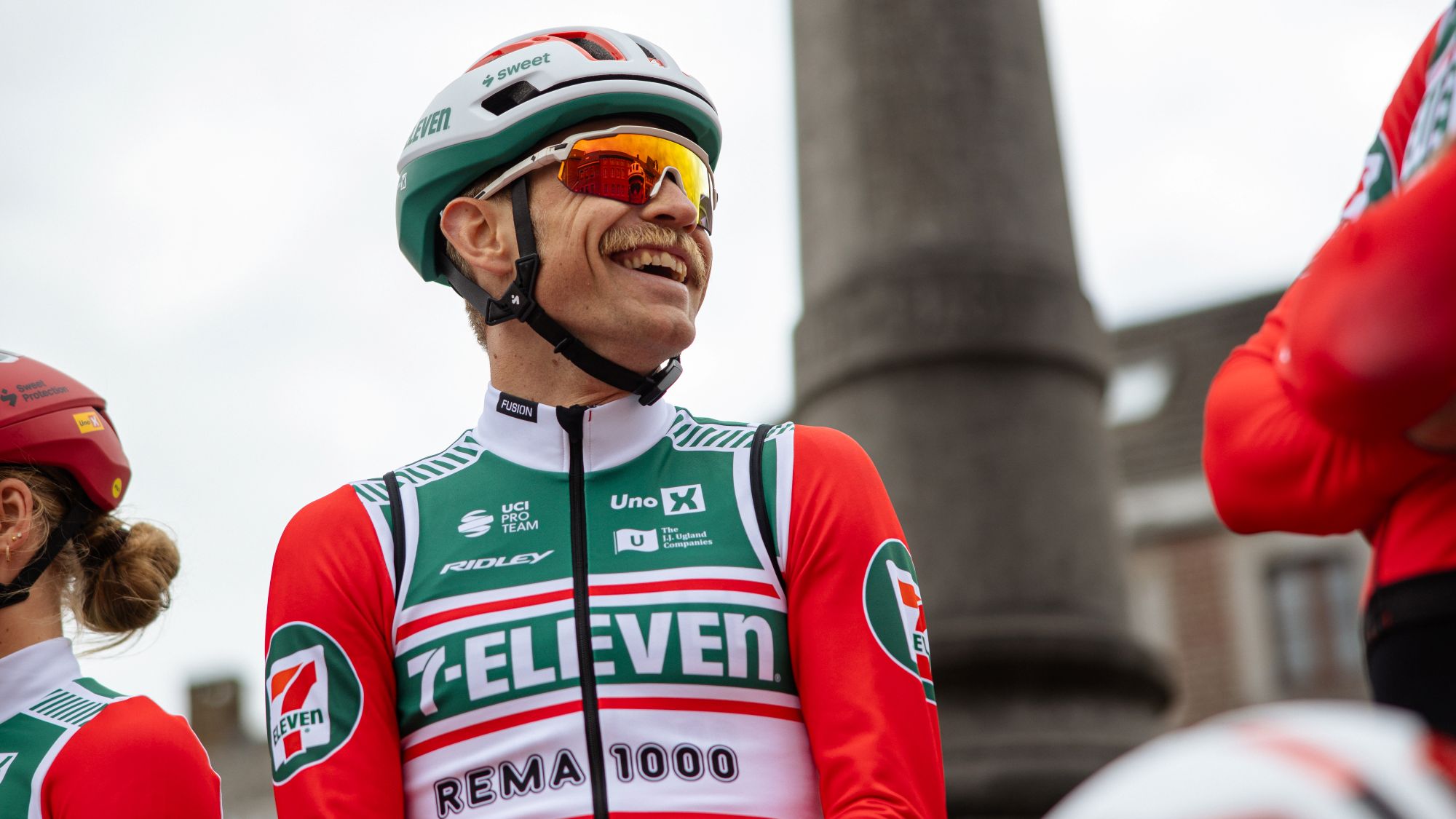The End of Euskaltel

Richard Moore investigates the demise of the Euskaltel, the Spanish team that has been in the pro peloton for 17 years
The end of this year will mark the end of an era and a cycling institution. No longer will the slopes of the Pyrenees be packed with the orange-clad fans of Euskaltel-Euskadi; no longer will we see their riders, invariably slight, skinny climbers, dancing up those mountains, adding excitement and drama as well as a vibrant splash of colour.
After seventeen years, with the spark for the team said to have been the 1992 Tour de France, which started in San Sebastián (not without incident: the Channel 4 car was bombed by Basque separatists), Euskaltel-Euskadi is no more, having died a slow, protracted death.
Time seemed to be running out for the squad since last December, when they had to sell their buses to balance the books. But after a brief period of optimism at the start of 2013, with the curious announcement of an ambitious four-year plan, the stituation deteriorated after the Tour de France, with the management edging ever closer to admitting defeat in their search for new backers.
Then came a reprieve. Fernando Alonso, the Formula One driver and cycling fanatic, announced his intention to take over the team by acquiring their WorldTour licence and moving the operation west to his native Asturias.
The news of Alonso's bid coincided with the start of the Vuelta A España and, naturally, lifted all the riders. One of them was Jorge Azanza, a typical Euskaltel rider in so many ways. Azanza is 31, he comes from the Basque Country, and he isn't a champion, but he has ridden for Euskaltel for seven years after turning professional with another Basque team, Kaiku.
As Azanza says, the implications of Euskaltel's collapse are significant and go beyond the disappearance of a professional cycling team. This is not just a sponsor backing out; this is a fiercely proud region losing one of the means by which it has expressed its identity on an international stage.
Get The Leadout Newsletter
The latest race content, interviews, features, reviews and expert buying guides, direct to your inbox!
Read the full article in the December 2013 edition of Cycle Sport available on iTunes, Google play and all tablet devices.



Thank you for reading 20 articles this month* Join now for unlimited access
Enjoy your first month for just £1 / $1 / €1
*Read 5 free articles per month without a subscription

Join now for unlimited access
Try first month for just £1 / $1 / €1
Founded in 1891, Cycling Weekly and its team of expert journalists brings cyclists in-depth reviews, extensive coverage of both professional and domestic racing, as well as fitness advice and 'brew a cuppa and put your feet up' features. Cycling Weekly serves its audience across a range of platforms, from good old-fashioned print to online journalism, and video.
-
 Gear up for your best summer of riding – Balfe's Bikes has up to 54% off Bontrager shoes, helmets, lights and much more
Gear up for your best summer of riding – Balfe's Bikes has up to 54% off Bontrager shoes, helmets, lights and much moreSupported It's not just Bontrager, Balfe's has a huge selection of discounted kit from the best cycling brands including Trek, Specialized, Giant and Castelli all with big reductions
By Paul Brett
-
 7-Eleven returns to the peloton for one day only at Liège-Bastogne-Liège
7-Eleven returns to the peloton for one day only at Liège-Bastogne-LiègeUno-X Mobility to rebrand as 7-Eleven for Sunday's Monument to pay tribute to iconic American team from the 1980s
By Tom Thewlis